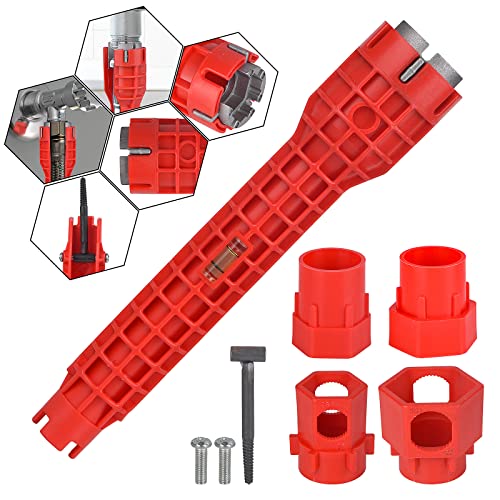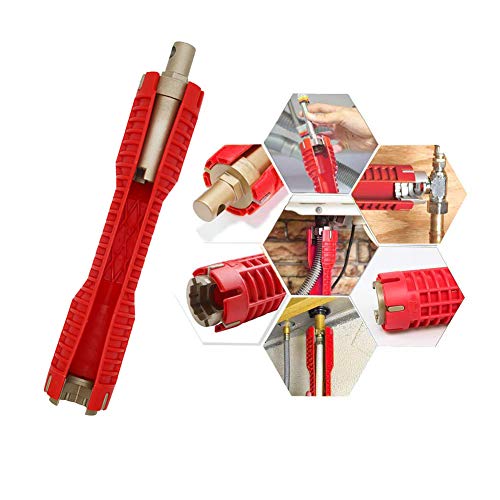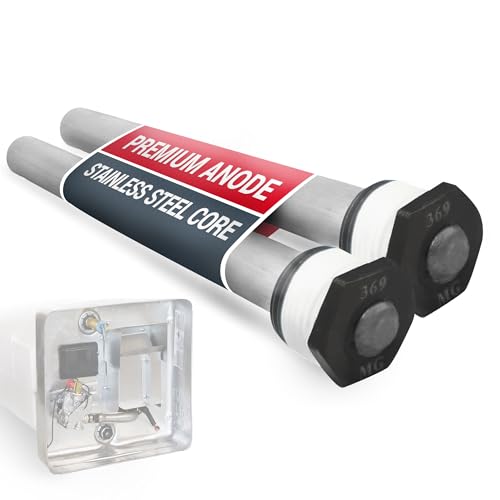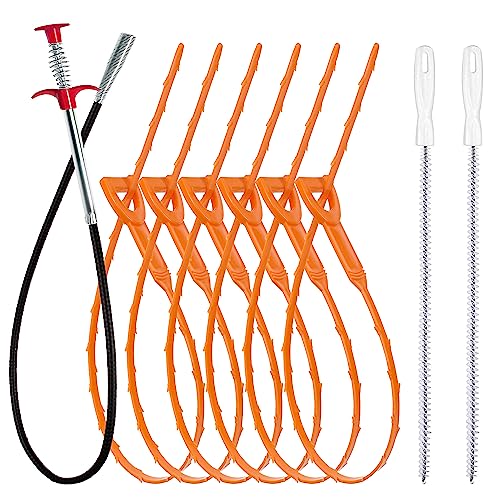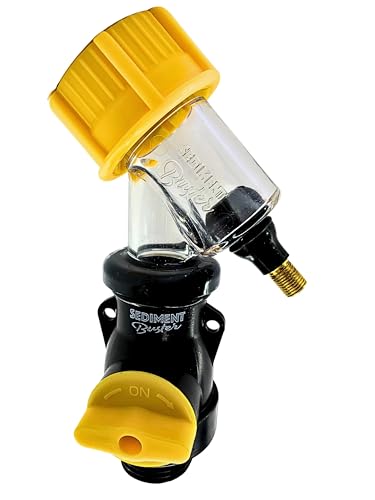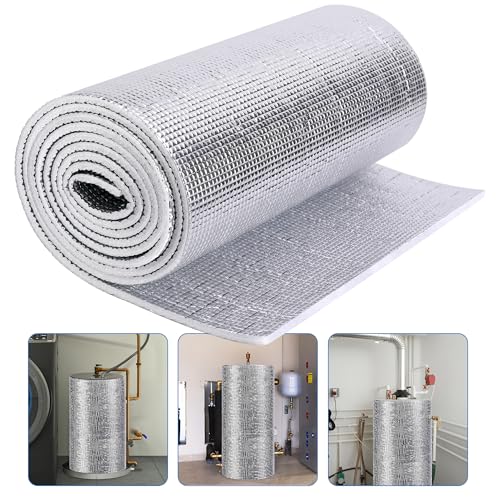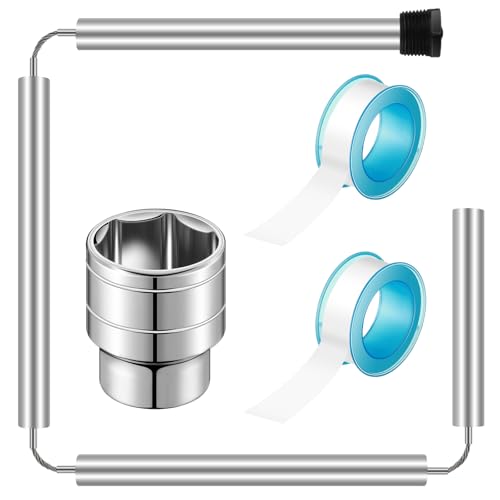I think this is what geofd is referring to. This is what he City uses. has the meter union incorporated in it.
You can get a straight one and put the meter vertical, start up to line above it.
diehard is correct....but that valve mr david is talking about is also a great idea the work on galvi brass copper......the one I did use had a rubber gasket and (teeth)to grip thematerial and a split nut with a locking screw so its very secure!!!!!!!!!
https://www.muellercompany.com/water-works/service-brass/meter-valves/ball-angle/e-24259n/
You are using an out of date browser. It may not display this or other websites correctly.
You should upgrade or use an alternative browser.
You should upgrade or use an alternative browser.
Main Shut Off Valve Questions (w/Photos)
- Thread starter narlycharley
- Start date

Help Support Plumbing Forums:
This site may earn a commission from merchant affiliate
links, including eBay, Amazon, and others.
The guy did a nice job. Not sure what the rates are in NY. Were the valves included in the price? Not sure on your post
if you feel you got a good job or not.
if you feel you got a good job or not.
walker63
Member
The guy did a nice job. Not sure what the rates are in NY. Were the valves included in the price? Not sure on your post
if you feel you got a good job or not.
I was happy with that price, which included all materials.
He used 2 valves (one was pricey), an 8 foot section of copper tubing, copper fittings and copper stand offs.
My only purchases were new ground clamps for when the meter got changed out.
It was pretty cool to watch him set out a laser level line in order to know where to place the 2 copper stand off's in alignment between the new shutoff after the meter and my existing run over head.
His expensive hammer drill was much faster boring out 2 pilot holes in my concrete foundation than my little hammer drill would have been.
I figured that he had about $110 -$115 in materials.
Once you subtracted his business over head, I bet his actual hourly rate was right where it should have been for someone as experienced as I thought he was.
I was happy with both the price and to have the job done right.
I agree. You could tell the guy was a professional. Was he able to use the old flair nut on the new valve?? That can
be tricky sometimes as manufactures are not the same.
be tricky sometimes as manufactures are not the same.
walker63
Member
I agree. You could tell the guy was a professional. Was he able to use the old flair nut on the new valve?? That can
be tricky sometimes as manufactures are not the same.
No, that originally was why he wanted to either leave or replace the original shut off with one that would fit the old nut.
I wanted the old flare cut out and a new flare with the new valve.
He agreed once he stopped by to look at the job.
I was also mildly insistent that I wanted what I wanted.
He gave me the standard warning of what could happen and what it would cost to replace my water line if it didn't go well.
My reply was to ask him how many attempts he would have based the length of my 3/4" stubbed line if something went wrong with the 1st flare?
After that he simply replied that there shouldn't be a problem and I thought I had a pretty good understanding of what the dynamics were about he desire to re-flaring any water supply pipe.
Which was that he could easily do it, but it's always safest when you're in the biz to not do it of you don't have to.
It only took him a few minutes to pop on his flare tool and get it done when it was go time.
I had only seen YouTube videos of someone manually flaring a copper pipe with a flare tool and a mallet and was surprised at how quickly he accomplished it.
If I had access to his flare tool/jig, I might have "over confidently" done the work myself! Lol!
Collin was a pro all the way and I would definitely hire a pro for a job like what the OP is looking for.
narlycharley
Member
I haven't heard a final solution guys. Do you think I could get away with heating up the old valve (with the city shutting off the B valve outside) and sliding it off of both copper ends? I would then clean up the copper to shiny and solder on a new ball valve. Thoughts?

$29.99 ($7.50 / Count)
$31.99 ($8.00 / Count)
1 Micron 2.5" x 10" Whole House CTO Carbon Water Filter Cartridge Replacement for Under Sink Water Filter System, Dupont WFPFC8002, WFPFC9001, FXWTC, SCWH-5, WHEF-WHWC, WHCF-WHWC, AMZN-SCWH-5, 4Pack
PUREPLUS FILTERS

$26.36 ($4.39 / Count)
$32.98 ($5.50 / Count)
Membrane Solutions 5 Micron 10"x2.5" String Wound Whole House Water Filter Replacement Cartridge Universal Sediment Filters for Well Water - 6 Pack
Membrane Solutions Corp

$27.19
$32.15
RIDGID 57003 EZ Change Plumbing Wrench Faucet Installation and Removal Tool
Amazon.com

$45.56
$69.99
Rain Bird LNDDRIPKIT Drip Irrigation Landscape/Garden Watering Kit with Drippers, Micro-Bubblers, Micro-Sprays
Amazon.com

$42.56
$49.60
RIDGID 29983 Model 223S 1/4" to 1-1/4" Inner/Outer Copper and Stainless Steel Tubing and Pipe Reamer, Small
Amazon.com
Thats the way I would do it. Take a shop vac and suck as much water out of the pipe that you can after the city
shuts it off. Like you said it has to be really clean and then fluxed up before you can solder it.
shuts it off. Like you said it has to be really clean and then fluxed up before you can solder it.
narlycharley
Member
If I wanted to make it "pretty" by getting rid of the 1/2" piece before the meter, would I just run it like this?
- Line out of concrete foundation.
- New ball valve
- Straight piece of 3/4" copper
- 3/4" 90 elbow fitting to go to meter
- Another small straight run of 3/4" copper pipe
- Small run soldered to a 3/4" female threaded fitting (after torquing it down to the fitting that's torqued down to the meter)
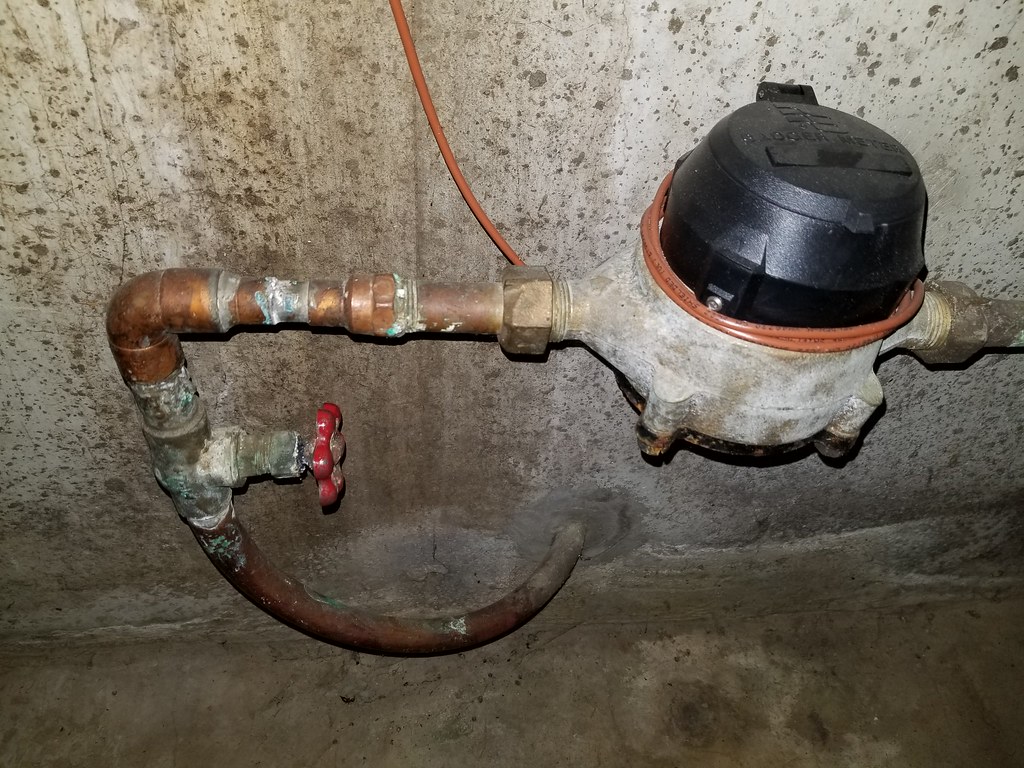
- Line out of concrete foundation.
- New ball valve
- Straight piece of 3/4" copper
- 3/4" 90 elbow fitting to go to meter
- Another small straight run of 3/4" copper pipe
- Small run soldered to a 3/4" female threaded fitting (after torquing it down to the fitting that's torqued down to the meter)

walker63
Member
I'm not a plumber but posted what I had a licensed plumber do for me in a similar situation in Central New York
What does your local plumbing code say about sweating a valve onto your supply line?
My code requires a flare nut to be used, which I wouldn'taattempt myself.
That incoming line is the most important connection you have, even more so than your street shut off.
If your new self installed valve fails, then what?
I would definitely want to know if your current shut off that is sweated on is code.
A flared connection is a stronger connection, which is why it's code in my area and probably your area too.
Like I said in my original comment, I'm not plumber but do my own work in my house and knew I had to have my shut off replaced professionally.
Here's an example of a jig that flares copper pipe.
Of course, the valve nut goes on the copper first before you flare the tube.
Is there any reason that you don't want to hire a pro for the switch?
What does your local plumbing code say about sweating a valve onto your supply line?
My code requires a flare nut to be used, which I wouldn'taattempt myself.
That incoming line is the most important connection you have, even more so than your street shut off.
If your new self installed valve fails, then what?
I would definitely want to know if your current shut off that is sweated on is code.
A flared connection is a stronger connection, which is why it's code in my area and probably your area too.
Like I said in my original comment, I'm not plumber but do my own work in my house and knew I had to have my shut off replaced professionally.
Here's an example of a jig that flares copper pipe.
Of course, the valve nut goes on the copper first before you flare the tube.
Is there any reason that you don't want to hire a pro for the switch?
narlycharley
Member
I'm not a plumber but posted what I had a licensed plumber do for me in a similar situation in Central New York
What does your local plumbing code say about sweating a valve onto your supply line?
My code requires a flare nut to be used, which I wouldn'taattempt myself.
That incoming line is the most important connection you have, even more so than your street shut off.
If your new self installed valve fails, then what?
I would definitely want to know if your current shut off that is sweated on is code.
A flared connection is a stronger connection, which is why it's code in my area and probably your area too.
Like I said in my original comment, I'm not plumber but do my own work in my house and knew I had to have my shut off replaced professionally.
Here's an example of a jig that flares copper pipe.
Of course, the valve nut goes on the copper first before you flare the tube.
Is there any reason that you don't want to hire a pro for the switch?
Cost is the main reason. I'm comfortable doing just about anything myself, I have trust in the things I do, I may just need some help with WHAT to do.
#1 if it works don't fix it. ad your new valve elsewhere. you can just "re-pack" the valve but as you said you need to shut off street water to do it. your responsible if you touch that valve (street valve) and it leaks !!! don't do it. ad a valve elsewhere.
#2 the ground tie to the copper looks like it has no contact. check continuity with a meter. the meter kind looks fake but that's another story. the meter top looks fake and new work and i can't "read it" from the photo.
Check with your county government and see if a Permit was filed before that work was done. My guess is the work was done "illegally".
as far as before / after the meter? no law there except if your doing new work (which you are). it's limiting only if your house needs 3/4 to get to it's farther points. because the work was never likely never permitted: the rule on 1/2 or 3/4? doesn't matter. it's there. and you need to follow new rules not old rules if you change it. and you should know that's not a question answered by people from other states in a forum
#2 the ground tie to the copper looks like it has no contact. check continuity with a meter. the meter kind looks fake but that's another story. the meter top looks fake and new work and i can't "read it" from the photo.
Check with your county government and see if a Permit was filed before that work was done. My guess is the work was done "illegally".
as far as before / after the meter? no law there except if your doing new work (which you are). it's limiting only if your house needs 3/4 to get to it's farther points. because the work was never likely never permitted: the rule on 1/2 or 3/4? doesn't matter. it's there. and you need to follow new rules not old rules if you change it. and you should know that's not a question answered by people from other states in a forum
Diehard
In Remembrance
I believe he was simply asking for opinions on replacing the existing 3/4" valve with a new 3/4" ball valve.#1 if it works don't fix it. ad your new valve elsewhere. you can just "re-pack" the valve but as you said you need to shut off street water to do it. your responsible if you touch that valve (street valve) and it leaks !!! don't do it. ad a valve elsewhere.
#2 the ground tie to the copper looks like it has no contact. check continuity with a meter. the meter kind looks fake but that's another story. the meter top looks fake and new work and i can't "read it" from the photo.
Check with your county government and see if a Permit was filed before that work was done. My guess is the work was done "illegally".
as far as before / after the meter? no law there except if your doing new work (which you are). it's limiting only if your house needs 3/4 to get to it's farther points. because the work was never likely never permitted: the rule on 1/2 or 3/4? doesn't matter. it's there. and you need to follow new rules not old rules if you change it. and you should know that's not a question answered by people from other states in a forum
Believe he mentioned having the city shut the water at the street a couple of places. If they don't have a problem with him replacing the existing valve, doubt there would be a problem.
Whether the existing work was done legally, is not going to mean much to anyone.
Edit: BTW...What makes you think that's a ground wire, going from a meter to the water pipe?
That black cap is likely the new electronic reader with a remote device outside the house(on the other end of the wire) for the meter reader to read the meter.
Last edited:
narlycharley
Member
I believe he was simply asking for opinions on replacing the existing 3/4" valve with a new 3/4" ball valve.
Believe he mentioned having the city shut the water at the street a couple of places. If they don't have a problem with him replacing the existing valve, doubt there would be a problem.
Whether the existing work was done legally, is not going to mean much to anyone.
Edit: BTW...What makes you think that's a ground wire, going from a meter to the water pipe?
That black cap is likely the new electronic reader with a remote device outside the house(on the other end of the wire) for the meter reader to read the meter.
You're correct on all counts. That wire is in fact the remote devise sits right next to the end joist near the sub floor (near the street).







